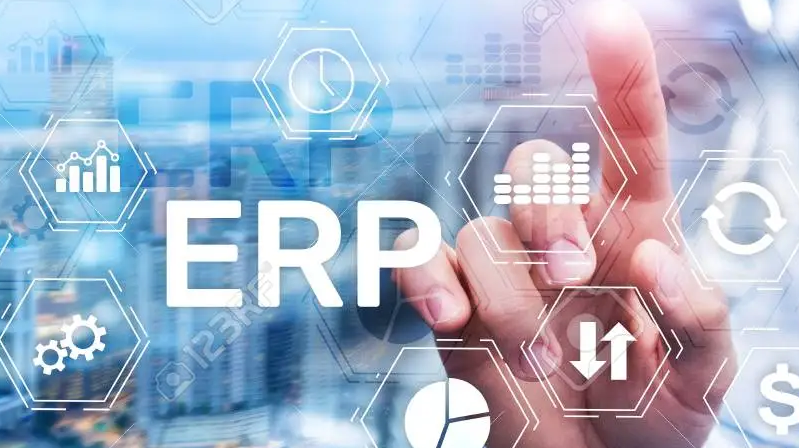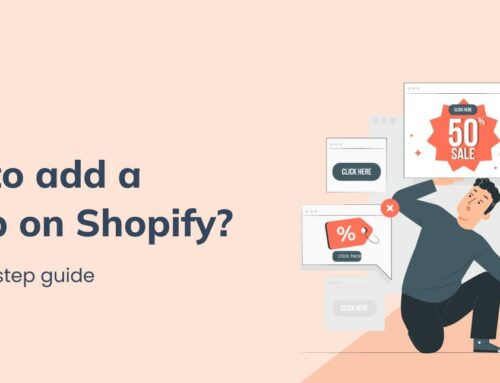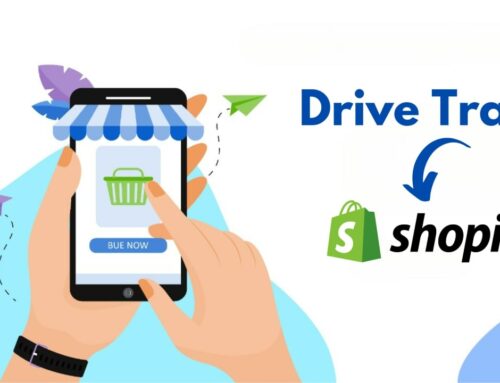It is challenging to run an eCommerce business, especially true for large-scale, high-volume transaction organizations that have to adapt to change quickly. That is why the most successful eCommerce firms use Shopify ERP integration.
Many moving pieces contribute to bottlenecks in the go-to-market process, such as numerous massive product categories with diverse attributes, various sales channels with distinct requirements, etc. Fortunately, Shopify has collaborated with Microsoft, Oracle NetSuite, Infor, Acumatica, and Brightpearl to connect ERP systems with commerce capabilities.
The monolith, also known as an ERP system, is at the center of most enterprises. An acronym for an Enterprise Resource Planning system has evolved through time to serve as the primary hub for inventory management, accounting, and production data.
As a result, a Shopify ERP system is essential for a large-scale eCommerce business, and the connectors you select reflect your performance. This post will lead you through the fundamentals of Shopify ERP integration and how you may begin developing your ERP system right away.
Let’s get started now!
Contents
Shopify ERP Integration Overview
What Is An ERP Integration And Shopify Global ERP Program?
ERP (Enterprise Resource Planning) integration links your ERP software to other systems like an EDI (electronic data exchange) platform or eCommerce apps. ERP integration aims to enable the flow of information between your systems, integrating your software so that it may be used holistically and translated into effective business choices. It is a method of automating business procedures and increasing organizational productivity.
According to C2 Research, more than 53% of organizations consider ERP a high-priority investment sector. ERP integration creates a single source of truth in your organization. It also allows essential information to be rapidly and readily shared across departments.

The following are the most prevalent integration methods:
- Custom integrations are when a company creates its core integration. Programmers can match the API code of the software with the ERP system they want to interface with. They necessitate the use of technological resources and demand time.
- Native integrations, also known as vendor-built integrations, are out-of-the-box integrations that allow you to link specific applications. Many tools, for example, now connect directly to Shopify. They cover common use cases and often do not require additional subscription fees.
- Integration Platform as a Service (iPaaS) is a cloud-based solution for developing and deploying integrations. Organizations can use iPaaS to design workflows that integrate cloud-based applications and deploy them without installing or managing hardware.
How Does Shopify ERP Integration Affect Your Business?
According to a Panorama Consulting Solutions ERP report, 95% of participants reported that implementing ERP solutions, including integration, improved all or parts of their business processes. ERP integration has grown throughout time, and here are some of the advantages it can provide for your company:
- Automated processes: Efficiency improves when each employee uses the integrated ERP system as their primary point of contact. They can function flawlessly in their jobs. It includes analyzing product information and tracking inventory withdrawals, shipments, and deliveries, which have been automated. It can increase productivity even further.
- Seamless customer experience: A higher level of client interaction equates to a higher client experience. For example, an ERP integration with Shopify linked system can notify clients when the production process begins, when the product has been packed, and when it is sent and delivered.
- Cost-effectiveness: Perhaps the most valuable benefit of an ERP-Shopify integration is the chance to save your company or organization money in various ways. By automating multiple fundamental, time-consuming procedures between your ERP and Shopify processes, you reduce errors and the need for additional staff. Cross-organizational collaboration makes it simple to identify flaws likely to increase costs. It encourages improved resource allocation, from work to stock to hardware.
- Data safety: Your Shopify and ERP systems contain critical, sensitive information that you must continually endeavor to keep secure. Some data will be compromised or lost without suitable Shopify ERP integration. Therefore, you must combine the two so that data from both sides are protected in a synchronized system where everyone can see what is going on and take action. This is especially important today that cyberattacks are on the rise.
Types Of Best Shopify ERP Integrations
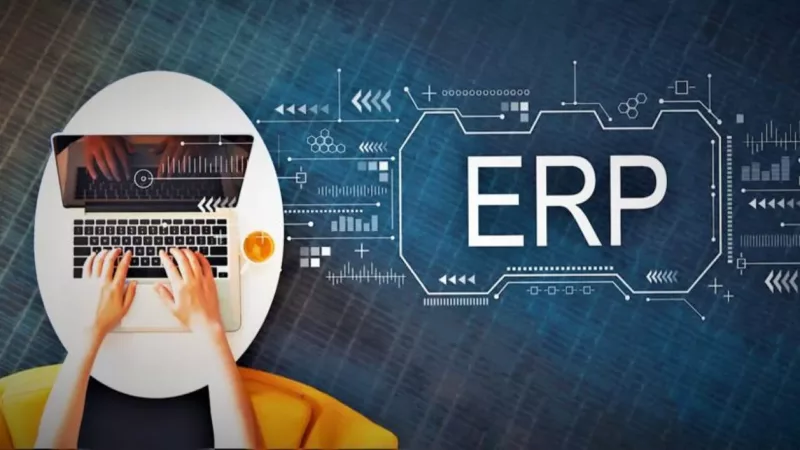
The type of ERP Integration that would work best for your firm must be guided by your specific business needs and the budget you are ready to spend on this effort. The following are the main types of ERP integration:
Ecommerce Store
This entails linking your eCommerce store to an ERP solution, which improves the shopping experience for customers and the store’s effectiveness.
To be more specific, orders, customers, leads, customer services, taxes, delivery, and shipment times can all be tracked with an eCommerce ERP Integration. This connectivity also allows critical information to be easily accessible to everyone in the company.
Business Intelligence (BI)
Business Intelligence has quickly become a standard in ERP management frameworks. The BI component of ERP collects data and runs analyses to provide helpful information about company processes.
Moreover, business intelligence (BI) becomes critical when a company’s decisions are based on data. The most crucial element of BI is a good reporting feature, which allows you to sort through the information it analyzes.
Project Administration
Some ERP systems provide project management tools. You will be able to decide on project prices and collaborate with finance and HR departments. Besides, you can examine project procedures and updates and know who is working on which project. Finally, it is the delivery time or date if your ERP includes a project management module.
In addition, this type of s encourages duties across departments, allowing businesses to address minor project concerns before they become significant issues.
Customer Relationship Management (CRM)
Without clients, your company will not be able to survive or grow. As a result, dealing with your eCommerce clients and leads efficiently should be a top concern. CRM modules are absolutely the best ERP to integrate with Shopify for example that enable you to monitor and track all clients and guide information within your ERP solution. The intelligence gained by linking your CRM with your eCommerce business will aid in the improvement of your advertising/marketing and sales efforts.
Shopify Introduces Global ERP Program
The Shopify Global ERP Program

Shopify is establishing the Global ERP Program to help executives of expanding organizations adapt faster, work smarter, and perform better to remain resilient and prepare for the future of commerce.
Specifically, it enables selected ERP partners to create direct interfaces with the Shopify App Store. For the first time, Shopify is collaborating directly with prominent ERP suppliers worldwide. It includes Microsoft Dynamics 365 Business Central, Brightpearl, Infor, Oracle, and Acumatica, with more to follow in the future.
Read More: Shopify Plus Updates: Is Shopify Plus Worth Your Money?
Furthermore, merchants may now use various certified apps directly linked with Shopify via the Global ERP Program, eliminating the requirement for third-party solutions to connect their ERP to Shopify. The Shopify Global ERP Program, a subset of the Shopify Plus Certified App Partner Program, assists partners from the Shopify Solutions Engineering Team in developing their apps. While it also gives merchants confidence that their apps meet a high standard of performance and user experience.

Benefits Of The Shopify ERP Integration Program
Merchants gain access to the following features by activating apps through the Shopify ERP integration program:
First, connections between workflows are seamless, resulting in data-informed decision-making. Apps in the Shopify ERP integration program link to merchants’ ERP accounts directly. Thus, merchants gain up-to-date data on their inventories, products, orders, and customer information by integrating their ERP systems with their commerce operations. Besides, this is crucial for making critical company decisions and offering great commerce experiences to their customers.
Second is the ability to regulate their data. Installing apps verified and recognized by the Shopify Global ERP Program allows merchants to ensure that proprietary data flows efficiently and securely between their Shopify admin and their ERP systems without needing a third-party connection.
Last but not least, you can save money and time. By linking directly with certified ERP providers, merchants may avoid the time-consuming and costly maintenance of bespoke setups. With fewer programs required to run their enterprises, retailers may add more automation, increasing the efficiency of their operations.
Typical ERP Integration With Shopify Difficulties And Risks
To recap, what is the goal of an ERP system? You are accurate if you say to automate business procedures and make the organization more efficient. However, integrating an ERP with other enterprise systems is not always straightforward.
Let’s look at a few common challenges that arise during a Shopify ERP integration.

Over Budget
The majority of ERP deployments cost three to four times what was initially planned. System changes to improve usability are the primary causes of overspending 65 percent of the time.
But don’t worry: the advantages outweigh the disadvantages. The appropriate ERP partners are critical to developing a solid Shopify ERP system for your company. They’ll provide a range of services to cover integrations and help you define clear goals and put the correct system in place for your business.
Despite the obstacles and dangers involved with ERP, firms stated that reducing 40% IT expenses, 38% inventory levels, and 35% cycle time was where their ERP achieved ROI.
Insecure Connections
Your ERP system houses the most critical corporate data, such as sensitive client data and proprietary intelligence. They must be safeguarded at all costs.
When cyber hackers target ERP software, adding more complexity to your system through Shopify ERP integration raises the likelihood of unsecured connections, putting your firm at a higher risk level.
Complexity
According to data accumulated over the years on ERP implementations, half of them fail the first time. Performances also take 30% longer than expected. Failures are frequently the result of ineffective communication and preparation.
Businesses frequently face the following challenges:
- Internal opposition to new systems
- Problems with software integration
- Inadequate data quality
People must be appropriately trained to use the systems. Internal adoption and enablement are critical here. Implementations can fail after launch if there is no internal champion or sufficient workflow documentation. To stay motivated to learn the system, they must also comprehend why there is a change in their workflow.
Businesses with a clear plan for Shopify ERP integration and a grasp of their requirements will be less likely to become ERP failure statistics.
Fortunately, you can rely on BSS Commerce Shopify, a Shopify ERP integration solution that may be customized to automate Shopify orders and items between your Shopify store and ERP system. In fact, our Shopify ERP integration service enables businesses to swiftly and efficiently link applications. It also eliminates tedious and costly order management operations.
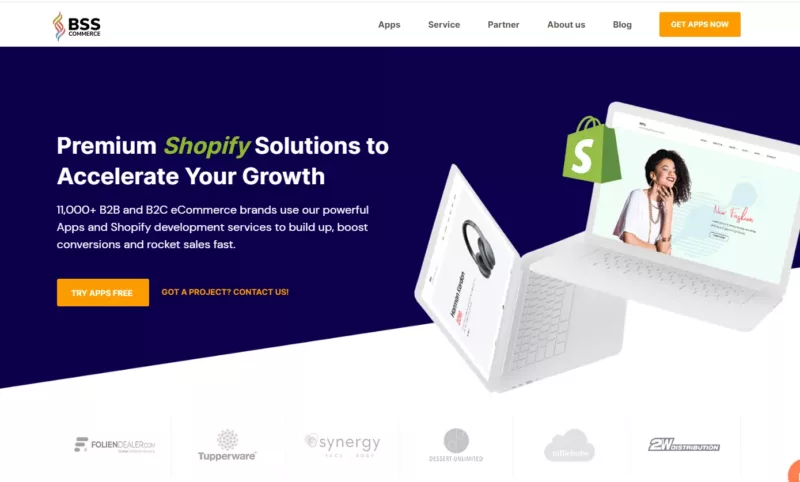
BSS Commerce Shopify is also a Shopify Technology Partner that offers an easy-to-use Shopify connector to Shopify Plus partners and customers. It supports both B2C and B2B integrations. Plus, it provides drag-and-drop tools to facilitate access to the Shopify API, enabling enterprises to automate the uploading and downloading of order data between their internal business systems and Shopify.
What To Consider When Organizing The Shopify ERP Integration
It is vital to describe the business flow before beginning a Shopify integration project between your company’s business system and the eCommerce store. Consider all stages of working with consumers; this will help you determine what information you need to send and in what direction.
What factors must be considered for integration:
- What information should be sent to each side?
- How frequently will the exchange occur?
- Prepare your data for integration using the appropriate data format (CSV, XML, JSON, etc.).
- For the integration to be effective and easy, you must sanitize and clean your data, remove duplicate fields and customers, and fix incomplete or contradicting data. Your online store’s product/SKU IDs must match the Product/SKU IDs used to represent things in your accounting/ Shopify ERP system.
- Plan for potential problems, such as a lack of the right product, the likelihood of double data, and other obstacles.
Further Reading: Headless Commerce Shopify: Is It Worth Doing?

Following that, the technical complexity of your integration project is determined by how you choose to integrate it with your software business system. For example, accounting software, ERP, or CRM systems.
Furthermore, connecting directly to branded systems such as SAP, Oracle, and Salesforce is achievable but will require more time and work to create, test, and deploy. Still, integration utilizing messages of type XML, JSON, or CSV is the most common and efficient to date, and it does not necessitate any additional expenses or efforts.
Hiring Shopify ERP Integration Experts
Do you need a Shopify ERP integration solution that automates orders and inventory transfers between your Shopify store and your Shopify ERP system? BSS Commerce can assist you! The eCommerce integration with ERP, CRM, and EDI is BSS’s specialty and one of the most robust offerings. BSS Commerce can set up a quick and effective synchronization bridge that adds value to your business.
The Shopify ERP integration expert specializes in connecting Shopify with third-party systems and apps such as ERP and CRM. Besides, BSS has professionals who can address your integration difficulties, whether you are a Shopify user or simply wish to start a new store or transfer to Shopify from another eCommerce platform.
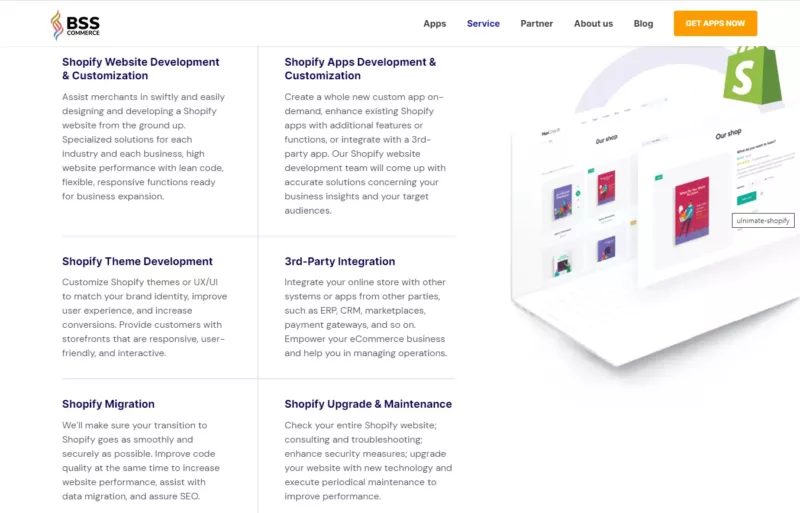
Let’s have a look at our Top best Shopify services that a ecommerce store must have.
Conclusion
Shopify ERP system is the core of a successful eCommerce firm. It aids in the centralization of business data, the automation of procedures, and the improvement of team cooperation—all for your company to deliver more excellent value to its customers and increase sales.
Ideally, Shopify collaborates with some of the leading worldwide ERPs that merchants rely on. It includes Microsoft and Netsuite Oracle to deliver native, publicly disclosed integrations. These worldwide ERP partners adhere to the exact requirements of the Plus Certified App Partner program and collaborate with our Developer Success team to give the best merchant experience possible through these integrations.
Moreover, ERP integration with Shopify can save you time and money while increasing your Shopify sales without growing the duties of your team. The efficiency of essential operations will improve dramatically. For example, automatic stock updates, improving product information, updating numerous locations at once, detecting holes, and filling them promptly. On the other side, your customers will benefit from an improved customer experience. Since your core operations engine (ERP) is now in constant sync with your eCommerce business (Shopify).
If you’re still using Excel or other manual methods to manage Shopify product attributes and distribution, You’re passing up a huge opportunity to increase revenue. See BSS Commerce’s Shopify ERP integration service in action right now.
Don’t miss these articles if you are a B2B business or preparing for a Shopify B2B store.

